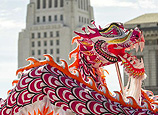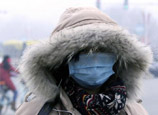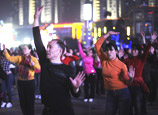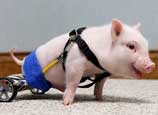
Fatalities
In June 2012, 10 independent travelers from Shanghai got stuck in a remote mountain valley in Wenzhou, Zhejiang Province, when torrential flooding swept all 10 away. Two men died.
Last December, two climbers lost their lives on Beijing's Wuzhi Peak, a formidable and very popular trek in winter, despite sub-zero temperatures.
According to news reports, one of the victims was the expedition's assistant guide, a highly experienced and physically fit 25-year-old who had just completed his leadership training course. The other casualty was a 30-year-old trekker.
It was a classic case of failure to read the danger signs and overestimating physical capacity and endurance.
That day the weather was bad, with heavy snow, temperatures below minus-30 degrees Celsius, visibility of only 50 meters. Most of the team turned back, but the assistant and one trekker thought they could continue and make their way back. They left most of their packs mid-mounting, intending to collect them later.
They had only their communication devices. By mistake, the returning hikers took those packs back down the mountain. The two trekkers lost they way back in heavy snow. Rescue was hampered by bad weather.
"You have to keep in mind that climbing is an outdoor sport. Technology and support can't cover everything. It's important to keep your mind open for changes and not always do what everybody else is doing," says Coster. "Here, it is definitely beneficial to have experienced leaders who have good local knowledge, know-how on handling equipment and know how to negotiate unchartered territories."
The journey, not the destination
In a high-risk activity, knowing how to concede defeat to the unpredictable wilderness is crucial. It can be learned, though some people never learn. It is not failure - what the Chinese call ban tu er fei (literally giving up halfway), which has the negative connotation of losing heart before reaching a goal.
"It is about learning how to let go," says Pan Jiahua, a 27-year-old supply chain executive in Shanghai. For her, the value in the ascent also lies in the mental journey of self-awareness and independence, as she spins herself into a cocoon of solitude during the climb.
The effort does not go to waste, it's considered a small price to pay for a new perspective on life.
Besides cultivating perseverance, endurance and character-building, mountain climbing also makes people aware of the natural environment and wildlife and the need for preservation and sustainable development.
"Eventually it brings about an awareness of how the lifestyle choices we make always have a consequence on the environment," says Elizalde.
To find a community of climbers, check Hikers Home (www.hikershome.com) or the North Face, China (www.quyeba.com).


















 Auto-chat app sparks social skills concern: A littile yellow chicken can talk, really?
Auto-chat app sparks social skills concern: A littile yellow chicken can talk, really?


![]()
